MercoPress. South Atlantic News Agency
Tag: Ireland border
-
Wednesday, January 16th 2019 - 05:57 UTC
PM May Brexit deal pulverized by Parliament; Corbyn tables a no confidence vote for this Wednesday
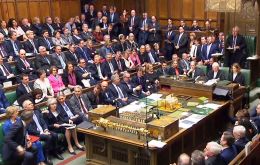
Prime Minister Theresa May's Brexit deal was rejected in Parliament by 230 votes - the largest defeat for a sitting government in history. MPs voted by 432 votes to 202 to reject the deal, which sets out the terms of Britain's exit from the EU on 29 March.
-
Thursday, October 4th 2018 - 08:16 UTC
EU drafting new partnership terms with UK, including the Ireland border issue
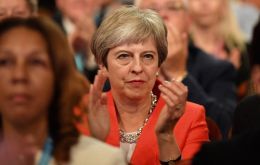
Unworkable”, “unacceptable”, “impasse”, are some of the words used to describe Brexit talks between Britain and the European Union do little to temper concerns that the two are heading for a chaotic divorce. But behind the scenes, both sides are preparing concessions as part of what one British official called “a constructive dialogue” that could yet lead to a deal.
-
Monday, October 1st 2018 - 06:54 UTC
Tough week for Theresa May: convince public opinion and reunite divided Tories
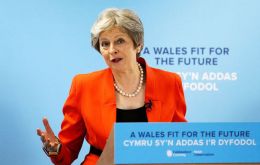
Tough week ahead for British Prime Minister Theresa May who is attending the Conservative Party conference in Birmingham and needs to send a reassurance message to the nation and reunite a deeply divided party.
-
Thursday, July 5th 2018 - 06:52 UTC
Sinn Fein remembers London that the Irish border issue is still pending
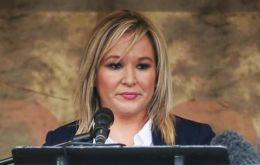
Theresa May’s government is more focused on its “internal negotiation” than talks on addressing the Irish border issue, Sinn Fein’s vice president has claimed. Michelle O’Neill said any return of physical infrastructure at the border between Northern Ireland and the Republic of Ireland after Brexit would be a security threat and have “serious implications” for business.
-
Thursday, June 28th 2018 - 12:09 UTC
UK and EU discuss Brexit in Brussels, as Belgium and England play a decisive match in Russia
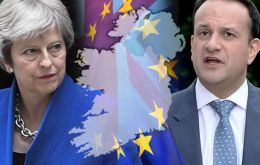
Theresa May has been warned that time is running out to secure a Brexit deal as she prepares to face the other 27 EU leaders at a summit in Brussels. The PM will brief all her counterparts for the last time before October, when both sides hope a deal will be done on the UK's March 2019 departure.
-
Friday, June 22nd 2018 - 08:52 UTC
Unequivocal EU support for Dublin: no Brexit deal without agreement on the Irish border
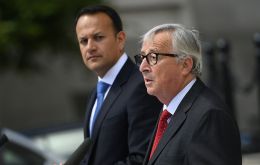
European Commission president Jean-Claude Juncker has warned the UK there will be no Brexit deal without agreement on the Irish border. On a visit to Dublin, Mr Juncker said fellow EU member states would not let Ireland be “isolated” on the impasse, insisting the demand for a resolution was a Europe-wide demand.
-
Thursday, April 12th 2018 - 07:20 UTC
EC president furious with Brexit: “only a united Europe can be a sovereign Europe”
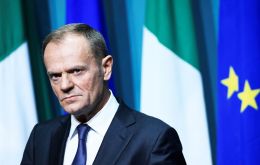
European Council President Donald Tusk has said Brexit makes him furious, and called on Europe to unite during a speech in Dublin. The statesman warned it would take very little time to demolish the structures of peace and unity built up in the continent.
-
Wednesday, March 14th 2018 - 09:39 UTC
Taoiseach Varadkar insists in an open “invisible” Ireland border
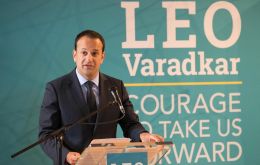
Irish Prime Minister Leo Varadkar has dismissed claims that people crossing the Irish border would have to pre-register after Brexit. Speaking from the United States, where he is conducting a series of St Patrick’s Day engagements, the Taoiseach said: “No, it is not a solution that we envisage.”
